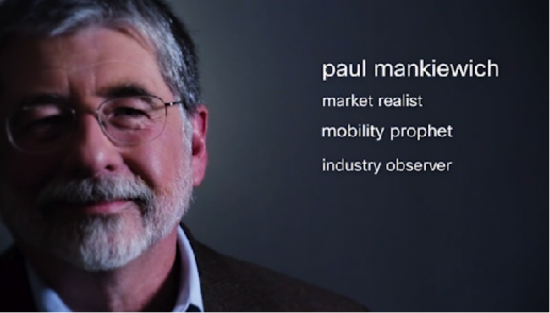
































By Paul Mankiewich, CTO of SP Mobility
Paul Mankiewich, CTO of Service Provider Mobility, charts the history of SON to it's current state of the art, and concludes that there is no point in deploying a small cell network without SON Technology.
The market over the next 5-10 years is obviously going to be transitioning very rapidly to absorb this massive increase in applications and devices. When we think of the world in 5 years, it is really becoming much more covered from a wireless point of view. If we go out even further, say to 10 years, there will be a complete inversion. Currently, we have a world of macro cells that are big with tall towers. It is going to be a world of ubiquitous RF coverage from any type of appliance, with small cells helping provide coverage. You can actually imagine as you get further out, appliances will be sharing content between them, and not going back through the network, so the network will be saving and caching content in the devices and sharing between them. It will become a complete web of interactive and interconnected devices over a 10 year period.
When looking ahead atthis new world of small cells, it is important to recognize some key challenges in deploying small cells. When inserting small cells into an already operating network, how does a service provider optimize between all the small cells that are peppered in the macro network, and then become ubiquitous? There needs to be a way to optimize that macro network. Small cells with SON technology have the ability to work with macro cell to optimize the end of user's quality of experience.
SON is a technology that had probably started to be developed almost 10 years ago at this point. There were a lot of people in the mobile industry that felt the whole idea of optimizing RF was a black art. And a long time ago, it was realized that that just wasn't true. So what has been going on in the industry is trying to make the networks take it out of that "black art" mode, and put it in the predictable mode, and that predictability is done through SON, or "Self Optimizing Network. By taking the intelligence of the network, SON technology can use analytics to decide what to do, and then re-organize the network in an RF way, and even from the point of view of the entire network. With both centralized and distributed SON, Cisco can optimize all the way from the end node, all the way through the entire network. At times, the network will be congested for different reasons, it is critical that operators use SON. As a matter of fact, I would say that there is no point in deploying a small cell network if there is no SON technology to make sure that it will operate optimally.
To learn more about the SON Technology and hear from other Big Thinkers please check out:
http://www.cisco.com/go/bigthinkersinsmallcells
 Tags quentes :
Tags quentes :